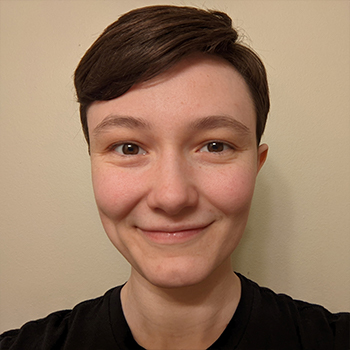
Stop sprinting towards your future
What my time in industry taught me
I always knew I would come back to academia. It didn’t matter that I would be taking at least one year off to work a flashy new job in Seattle biotech. It didn’t matter that the position would be a lot less stressful, and have a lot more benefits, than graduate student life. My mentor in my senior year as an undergrad told me I’d be bound by the “golden handcuffs” of industry, unable to break away from its cushy salary. And while he was wrong, I can’t help but appreciate the warnings. Three years passed before I finally came back to school and returning has been an arduous process. But those three years taught me a valuable lesson: don’t keep sprinting towards your future.
Before I earned my bachelor’s degree, I already had a job secured at a startup immunotherapy company. During my interviews, they asked me if I had plans to go back to school. I answered with an honest yes. They asked me how long I planned to work for them. I answered with a less-than-honest two years. My plans at the time were to use industry as a short break, apply to graduate schools that fall, and be back in the classroom before my knowledge of differential equations had completely faded from my mind.
Those plans quickly flew out the window.
It immediately became apparent that one year was not enough of a break. The summer went by too fast, and come fall, I found no motivation to fill out graduate applications. This lethargy didn’t sit well with me. I felt as if I was behind schedule, especially the following winter as I witnessed a wave of my peers get accepted into prestigious institutions. Next year, I told myself, would be the year I applied.
That was in the early months of 2020. The pandemic had other ideas.
I spent two months stuck at home, grateful that my company put the lives of its employees before their yearly goals but frustrated that I was unable to perform my lab work. Then, slowly, we returned to a socially distanced, temporally staggered work environment. Nevertheless, in only my second week back at the bench, I faced the direct consequences of COVID’s economic impact. The startup didn’t have the money to retain all its employees. I was let go.
So, I plunged into another two months stuck at home, this time with the added stress of financial uncertainty and an overwhelming feeling that I had failed as a researcher. My job search went as well as it could have given the health crisis raging across the world. I found another startup, and at long last, I was back in the lab. However, I was also staring down the barrel of another grad school application season.
This time, though, I was far less afraid to ignore it. I needed to give the pandemic a while to calm down. I wanted to rebuild my confidence in my scientific abilities. And I was also incredibly excited to work on the therapies this new company was developing. Grad school would have to wait again.
The year that followed was the least stressful of my adulthood. I stopped obsessing about moving too slowly to the next stage of my life, focusing instead on my love of science and other hobbies that had fallen to the side. My efforts in and out of work gave me a renewed sense of purpose and self-worth. So, when the next application season rolled around, I finally didn’t feel tired or useless. I felt ready.
Additionally, I benefited from the experience and connections of industry when applying to graduate school. I had a much better grasp on a lot of different scientific procedures, which bolstered my value in the eyes of potential PIs. My company also encouraged my aspirations, even pairing me with a mentor to aid in the application process. I was honored to have the CEO write one of my letters of recommendation, an achievement I certainly wouldn’t have earned if I had kept to my original plans.
Now that I’m back in school, though it has been less than a month, I am still so grateful for the three years I took away from academia. Yes, my math and coding skills aren’t what they used to be. And yes, having homework again is a pain. But I have a better sense of who I am as a scientist and what I want out of a PhD because of industry. I’m eager to take all that I have learned and channel it into a new project of my own design.
Overall, I can’t imagine how I would have ended up at MIT if I had remained so focused on getting into graduate school as fast as possible. The moment I stopped sprinting towards my future, I was able to catch my breath. I could finally hear my friends, family, and colleagues cheering me on, motivating me to take this next step in my life. With their help, I ended up exactly where I wanted to be. And not a moment too late.
Share this post:
